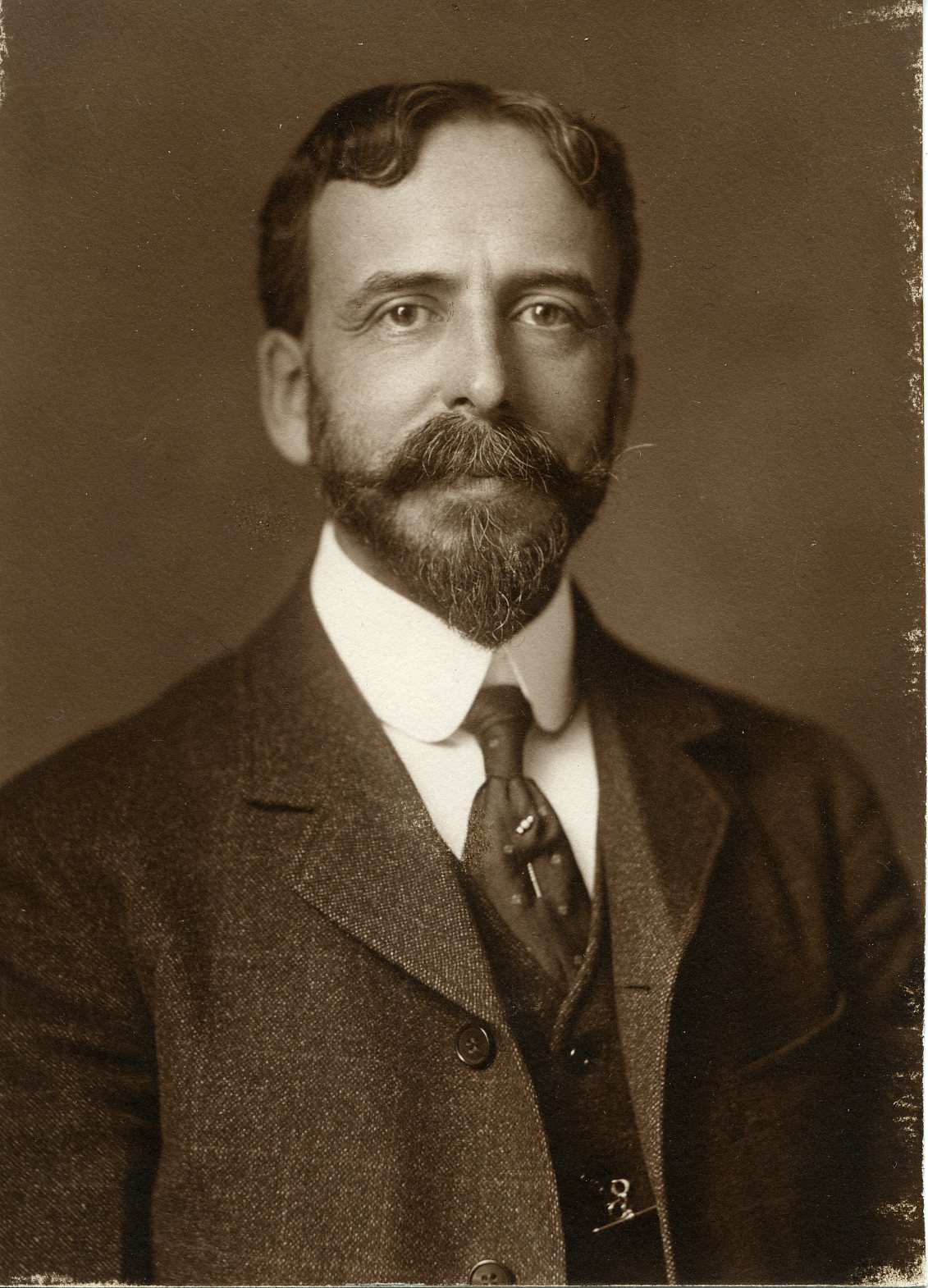Editor
Centurion, 1906–1933
Born 25 June 1859 in New York (Brooklyn), New York
Died 7 February 1933 in New York (Manhattan), New York
Buried Woodlawn Cemetery , Bronx, New York
, Bronx, New York
Proposed by Hamilton W. Mabie and William Rutherford Mead
Elected 1 December 1906 at age forty-seven
Archivist’s Note: Son of Lyman Abbott; brother of Theodore Jacob Abbott; uncle of Lawrence Abbott
Proposer of:
Seconder of:
Century Memorial
Lawrence Fraser Abbott’s active life was bound up with a publication which filled a large place in its prime but which, like many others of the kind in our past history, is now among things which are past. Those of us who knew Abbott in his younger days will associate with his personality the spirit of effervescent humor, followed as a rule by quick reversion to serious thoughtfulness. His classmates placed him among the college wits; the duty of paying the traditional Commencement-Day tribute to underclassmen, Faculty and Amherst townspeople, was unanimously committed to him. Son and grandson of well-known writers, Abbott gravitated naturally into journalism. He never became, as his own imagination had possibly foreshadowed, either a prolific journalist or a popular writer, but accident brought him ownership of the Outlook in its palmy days of the early Nineties. Originally a “religious weekly,” it had changed both form and name, had reserved a few pages for the older-time Sunday constituency, but otherwise had entered the field of the London Spectator and Saturday Review. Under the editorial direction of Abbott’s distinguished father [Lyman Abbott], and with such capable lieutenants as Hamilton Mabie on the staff, the publication quickly made its mark on the public controversies of the day.
But, after two or three decades of undiminished prestige, it encountered a new handicap; the progressively expanded “Sunday supplements,” book reviews and week-end discussion of current events in the daily press. It was then that Abbott himself conceived the expedient, after Theodore Roosevelt’s presidential turn expired, of infusing fresh vitality by adding that vigorous and contentious personality to the Outlook’s staff. In journalistic circles, it was taken for granted that the experiment would greatly enlarge the Outlook’s circulation, and so it did. Abbott himself told Archie Butt, on the golf-links at Chevy Chase, of how the Outlook’s news-stand sales ran up, even before the White House graduate had contributed a line. But the hope of an indefinitely continuous increase was not fulfilled; instead, the subscription list expanded with unexpected rapidity for six months, then ceased to grow, and the political events of 1912 left the Outlook confronted with all its previous problems. Ten years later, Abbott himself relinquished it. But he never relinquished his admiration for Theodore Roosevelt—of whom Abbott’s published reminiscences are among the most human and most readable.
Alexander Dana Noyes
1934 Century Association Yearbook

